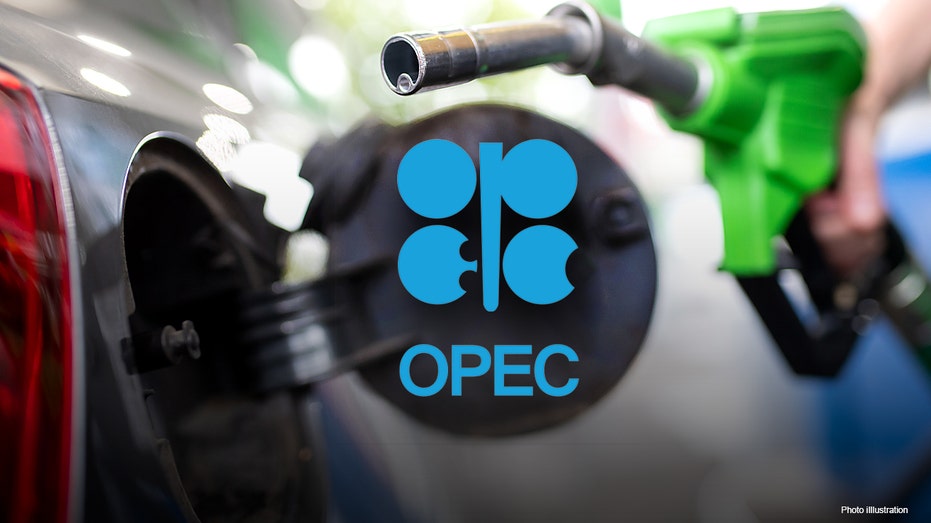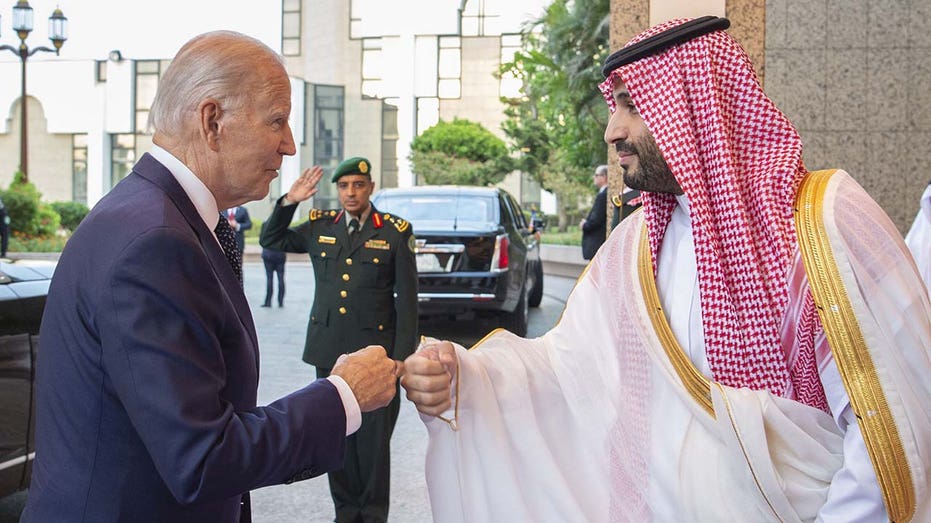OPEC president is open to cutting oil production
Consensus is growing for an idea first proposed by Saudi Arabia that it could pump fewer barrels
Momentum is building among oil producers behind the idea of cutting crude production to stabilize the market, with OPEC’s president the latest to back Saudi Arabia’s suggestion that the alliance might pump less—comments that pushed the price of a barrel back over $100 earlier this week.
The growing consensus among members of the Organization of the Petroleum Exporting Countries and its Russian-led allies, known as OPEC+, threatens to keep energy prices elevated despite Biden administration efforts to get the members to pump more.

A woman holds a pump nozzle in her hand at a gas station and refuels a car. (Photo by Sven Hoppe/picture alliance via Getty Images) / Getty Images)
Sanctions on Russian oil imposed over the invasion of Ukraine have created a supply shortage and buoyed prices to their highest levels in over a decade, creating record profits for producers after the pandemic suppressed demand.
The move toward reducing output comes as the U.S. and Iran inch closer to reviving a nuclear deal that would bring Iranian oil back onto the market, an outcome Washington hoped would depress the cost of energy.
OIL INVENTORIES LOWEST SINCE '85 BAD OMEN FOR WINTER
OPEC’s rotating president told The Wall Street Journal that the Saudi energy minister’s proposal to consider a reduction in light of market volatility was "in line with our views and objectives."
While the OPEC presidency doesn’t have decision-making power, the holder of the position often voices consensus emerging in the organization.

Oil cartel OPEC is threatening to keep energy prices elevated. (iStock / iStock)
"We think the return of Iranian barrels would be a qualifying event for a collective strategy shift," among OPEC members, said Helima Croft, the chief commodities strategist at Canadian broker RBC Capital Markets. She added that if an OPEC production cut reduced the oil-price benefits from the Iran agreement, that could erode the political gains for the Biden administration from the controversial deal.
Earlier this week, Saudi Energy Minister Prince Abdulaziz bin Salman said oil producers could respond to volatile oil prices, "including [by] cutting production at any time and in different forms."
WILL GAS PRICES CONTINUE TO DROP?
On Thursday, OPEC President Bruno Jean-Richard Itoua said he could back such action because "economic conditions created by the pandemic in recent years that have led to a slowdown in global economic activity have not yet been entirely stemmed."
Mr. Itoua, also the Republic of Congo’s oil minister, joins a growing chorus of countries backing the Saudi position, including Iraq and Kuwait—two of OPEC’s biggest producers—and Algeria and Venezuela. Equatorial Guinea, which is set to replace the Republic of Congo as the organization’s president next year, also says it agrees that production cuts should be considered.

President Joe Biden (L) being welcomed by Saudi Arabian Crown Prince Mohammed bin Salman (R) at Alsalam Royal Palace in Jeddah, Saudi Arabia on July 15, 2022. (Photo by Royal Court of Saudi Arabia / Handout/Anadolu Agency via Getty Images / Getty Images)
The statements by Saudi Arabia, OPEC’s biggest oil exporter, pushed international oil prices past $100 a barrel earlier this week for the first time in more than three weeks. It was the latest indication that Mr. Biden’s high-profile visit to Jeddah in July didn’t help toward lower prices at U.S. gas stations, and was the opposite of what the White House hoped to achieve from the president’s trip to the kingdom.
GET FOX BUSINESS ON THE GO BY CLICKING HERE
OPEC is next set to meet on Sept. 5, but there is no plan at this stage to discuss production cuts at the gathering. Several OPEC members have told the Journal that they might back a reduction in output, particularly if a global recession materializes.




















